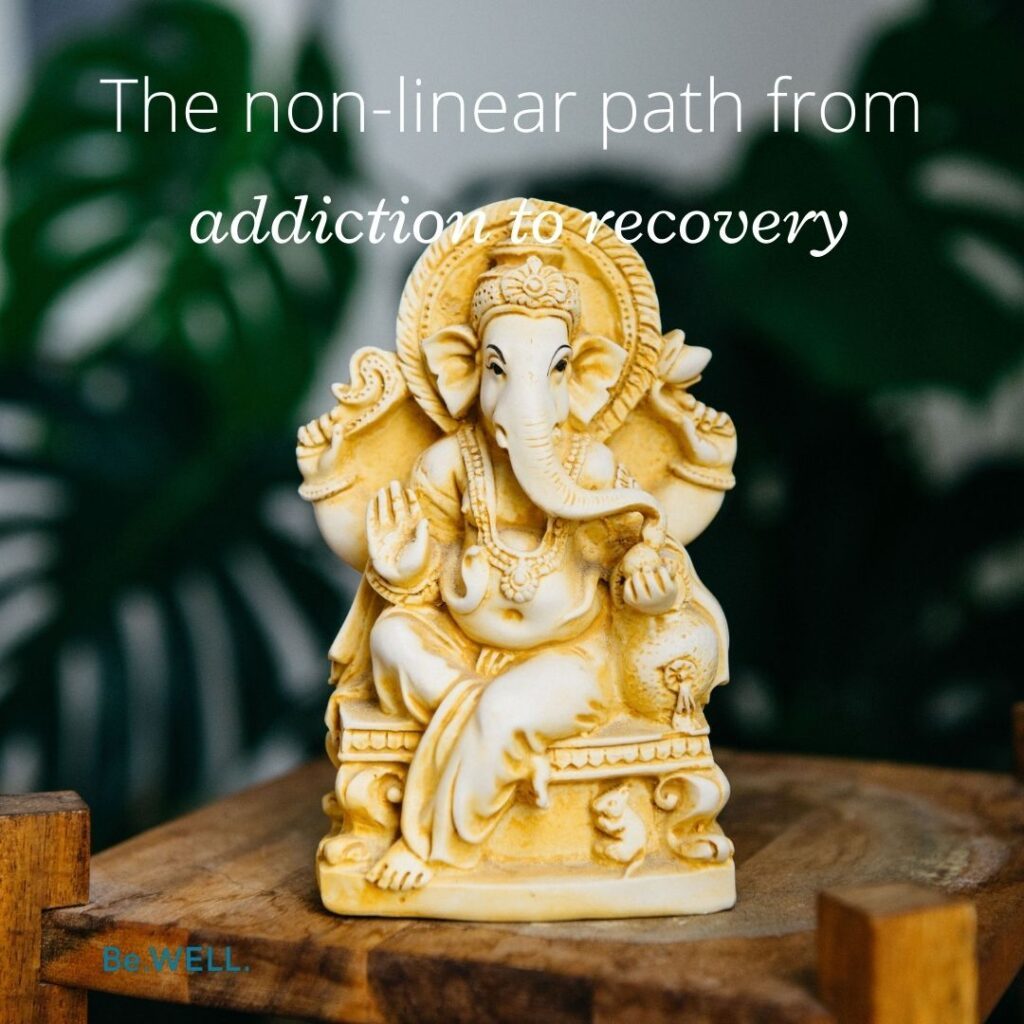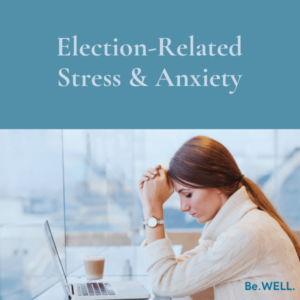We had the pleasure to sit down and have a conversation with Amy (pseudonym), below is her story of recovery and healing.
Hello! My name is Amy and I am a psychotherapist & licensed clinical social worker. I am also a:
- daughter
- sister
- friend
- aunt
- partner
I am also an alcoholic and live with alcoholism and Bipolar 2 disorder.
I am a healer and a patient. I am living proof that people can live with a diagnosis of Bipolar Disorder and recover from an addiction. All while living a very productive life.
Although, my experience might look different from others living with both a diagnosis of BiPolar and Addiction. No matter your background, substance use and mental health issues can impact anyone. It can cause great pain and emotional distress for you and your loved ones. The journey of recovery is a long one filled with ebbs and flows, but your recovery is worth it. A change in behavior this big has the potential to manifest a lifestyle that brings one great joy.
Recovery from what?
Recovery is a broad word.. It could mean recovery from a major medical condition, eating disorder, a break-up, grief of a loved one, and more. It certainly encompasses one’s journey of healing their mental health. Today, I am speaking specifically about recovery from substance abuse and how it can be linked to a mental illness..
What is Substance Abuse?
Substance Abuse as a way to self-medicate or find a way to manage your underlying mental health issue. As if Substance Abuse on its own wasn’t enough to deal with!
Often, people may be experiencing symptoms of a mental illness and have no idea. To fit in or feel “normal” they will use drugs and alcohol to cope with those symptoms. Addiction is a form of mental illness in itself and typically has a genetic predisposition in conjunction with stemming from environmental stressors.
The funny thing about recovery is that you never fully “recover”; rather it is a lifetime of work, maintenance, insight, and preventative measures. You’re never “cured”, but you do get better! When you are ready, you will realize you are on a path of self- discovery. Often times you gain deeper insight into yourself than your “normal” peers.
I say “when you are ready” because often, your loved ones might express you have a problem before you feel it is an issue for you. “It is only a problem when it becomes a problem for you” really rings true when it comes to mental illness & addiction.
If you find that your mental health and/or drug and alcohol use is impacting your daily functioning, you might be suffering from a mental illness that is being “hidden” in the substance abuse.
When you stop using you have a better chance of understanding the underlying causes of your substance use. You are better equipped to make choices about if and how you will have alcohol as part of your life.
Well what if my problem isn’t drugs or alcohol?
Behaviors that cause us emotional distress and shame typically should be examined more closely. Maybe your food intake or job stress is causing you anxiety and you want to better understand the behaviors and feelings surrounding them. Once you see that there is an issue your next step is to try to discover what is behind it all. Ultimately it can be helpful to acknowledge stages of change coined by Prochaska and DiClemente.
They are as follows:
- precontemplation
- contemplation
- preparation
- action
- maintenance
- possible relapse
These stages are applicable to many things besides substance use related to psychological stress. To clarify these stages:
Essentially you don’t realize you have a problem; you then finally start to realize “ok maybe it is a problem but I am not ready to address it”, you then decide to start looking into how to address it, you then take action i.e. finding a therapist, and finally you maintain your new lifestyle choices by continuing therapy and self-care. These stages are not linear and different people flow through them in various ways. Having improved mental health with or without addiction takes work and patience. It can take months or years to start to feel better, but you will begin to see results once you commit to your recovery journey.
My story, the short version:
I first came to terms that I had an alcohol use problem when I was around 15 -years old (I am now 33). I woke up to take my learner’s permit test to a pile of vomit on my bedroom floor and no recollection of the evening before after a certain hour. Back then, it was common for my peers to participate in weekend binge drinking but for me I always felt like my drinking was different than other people’s. Why did I drink more than my friends at parties? Why did I want to keep going when everyone else seemed to have had enough? Yet I became an expert at hiding the intensity of my use as well as sneaking in and out to avoid my strict parent’s knowledge of my debauchery.
By the time I got to college, binge drinking was even more normalized, and my use only escalated. I come from a household of non-drinkers, so I learned to hide my drinking at family functions which led to drinking too much and deep feelings of shame. Despite my immediate family members being teetotalers, I do have addiction on both sides of my family outside of my nuclear household, so I have a genetic predisposition for alcoholism and drug addiction. What I did not realize was I was subsequently treating a mood disorder with my alcohol use.
So when and why did I decide to address my issues? The truth is rock bottom has LAYERS. I will say it again… “it is only a problem when it becomes a problem for you” I won’t go into too many details but some of my “rock bottoms” included me fracturing some very important interpersonal relationships, getting hit by a car, and getting into legal trouble including two arrests. One of the more impactful wake-up calls was I began to have major depressive episodes the days following my binge drinking as well as the quality of work was suffering. I tried many psychotropic medications over the years, and nothing really worked most likely because I was using alcohol with them.
Alcohol is a “depressant” but that does not mean it makes you depressed. Rather it slows down or “depresses” your heart rate and neuro-transmissions. Alcohol can be a short-term alleviation to stress, anxiety, mania, and depression; however it can also cause huge emotional strain after intensified use.
Ahh alcohol…a global pastime. Work happy hours and after work drinks are very commonplace and can be a great way to network, see friends and date; however, it does have its dark side. As long as you can drink and not cause you or others emotional and even physical harm, I’d say it is safe to say you are not an alcoholic.
When I define my recovery, I believe it started a decade before I began to piece things together. It was not until my late 20s that I attempted to abstain from alcohol specifically. Prior to abstinence, I used harm reduction tricks such as drinking water between drinks, filling beer bottles with water, only drinking on weekends, etc. I ultimately decided to abstain from alcohol, I do believe harm reduction can work for many.
So then, what is Harm Reduction in the context of recovery?
Harm reduction simply means any “healthy” change in a behavior that prevents further risk. Using condoms for example, or perhaps only having three cigarettes instead of an entire pack. Even switching to a low alcohol content beer from something like wine or liquor is harm reduction. In terms of your mental health, harm reduction might be setting boundaries with friends “ I cannot make it tonight but I will be at the next event”; or, eliminating screen time prior to falling asleep.
Juxtaposed to harm reduction is abstinence which means to total refrainment from the behavior. Alcoholic or Narcotics Anonymous or other 12-step recovery groups are based in an abstinent behavior. I think it is important to know that there is not one linear path to recovery. For me, I still go see friends at bars but for some people this feels too risky.
Mental and physical wholeness:
Prioritizing your mental and physical wellbeing is important. We know the two are connected. When your body ails, likely your mental health is suffering too. Specifically, during Covid19, perhaps your drinking or drug use has increased and thus you are exercising less and eating things that may not be part of your routine and BOOM your mental and physical wellbeing has been impacted. Something like increased drinking of alcohol is actually a pretty normal response to such a global trauma. However, it is important to be mindful of its impact on your overall wellbeing.
Whether abstaining from the substance/ behavior or harm reduction is your approach, I recommend finding a therapist you feel safe and connected with.
Together you and your therapist can set attainable goals and create new boundaries. There is a huge stigma in society associated with mental health treatment and drug addiction, but luckily we are getting closer to social acceptance. Be careful not to stigmatize yourself. Often excessive substance use or other problematic behaviors are coping strategies yet can cause the painful feeling of shame.
When it comes to creating new coping strategies, you may have to try a few until you find one that works for you.. Making art, making or playing music, connecting to a positive social network, physical activity, cooking and writing are some examples.
So how can I find help?
As mentioned, a trustworthy and emotionally safe therapist is a great place to start. 12-step meetings happen globally at all hours and locations . These meetings help with accountability which is enormously important when you are trying to make a behavioral change.
Medication management can significantly help with one’s mental distress although it is best to consult a credentialed prescriber who can help you best understand what you are treating. The right antidepressant can do wonders for anxiety and depression. In fact, when your mental health is feeling better you might discover the problematic behavior will likely curtail (i.e. obsessively checking your ex’s Venmo or drinking more than you wanted to). As always, the New York Based Psychotherapists at BeWELL, our therapy practice in Manhattan, are always here to help. Schedule a consultation today if you think BeWELL is right for you.
Conclusion:
It takes some deep soul searching to decide how you want to proceed with your recovery. For me, finding a good committed psychiatrist, and a solid therapist led me to where I am now in my recovery as well quitting alcohol. I know that there is a great team out there for you as well.
For more information check out a replay of our Substance Abuse and Recovery Seminar.




